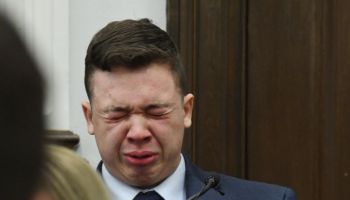CLEVELAND — The family of one of 11 women whose decomposing remains were found at a sex offender’s Cleveland home has sued the city and several law enforcement agencies, alleging racial discrimination and negligence led to her death.
The $42 million civil rights lawsuit was filed in federal court Monday by the family of Tonia Carmichael, who was black. Carmichael’s body was discovered buried in Anthony Sowell’s back yard in 2009, about a year after she disappeared.
Her relatives claim police in Cleveland and suburban Warrensville Heights refused to take a missing-person report when she vanished in November 2008. The family pleaded with officers at several precincts to investigate, the lawsuit says.
Two days after Carmichael disappeared, an officer in Warrensville Heights refused to file the report and told the family “she will show up after she finishes smoking crack,” the lawsuit says. After learning that she had last been seen in a rundown part of East Cleveland, the family tried to report her missing with Cleveland police. But an officer said he could not take the report about her because she was not a resident of the city, the lawsuit says.
The family then embarked on its own search and found Carmichael’s blue pickup truck, which had been abandoned a few blocks from Sowell’s home. The family tried to file a missing-person report with the city of Cleveland and was denied again, the lawsuit says.
An officer at a Warrensville Heights precinct said Carmichael would show up “after her drugs were gone,” the lawsuit says.
The lawsuit accuses both cities of “not promptly investigating claims of missing African-Americans, while making prompt investigations for white or Asian individuals.” It claims Carmichael was deprived of her civil rights as a “direct result of clear racially motivated discrimination.”
Carmichael, a 52-year-old crack cocaine addict, was strangled with an electrical charger. One of her daughters, Donnita Carmichael, is representing the family in the lawsuit.
The long list of defendants includes Warrensville Heights, police officers from both cities, the Cuyahoga County Board of Commissioners, former Cuyahoga County Sheriff Gerald McFaul, the Cuyahoga County sheriff’s department, the Ohio Department of Rehabilitation and Corrections and its director, the city’s public safety director Martin Flask, the city’s health department, an assistant city prosecutor and Sowell’s stepmother, Segernia Sowell. The lawsuit says Segernia Sowell “aided and abetted” her stepson’s actions.
The corrections department is accused of negligence because it “failed and or refused to provide treatment” to Anthony Sowell before it “released a sexual offender or predator from imprisonment without notice to an unsuspecting black community.” Sowell served 15 years in prison for attempted rape and was released in 2005.
The sheriff’s office, which is tasked with monitoring convicted sex offenders, was negligent for failing to regularly check up on Sowell, the lawsuit says.
Most of the defendants declined to comment. McFaul, Segernia Sowell and the police officers couldn’t be reached by telephone for comment Wednesday.
The complaint is the latest in a slew of lawsuits filed on behalf of the victims’ families. In December, the Carmichaels joined four other families in a wrongful-death lawsuit filed against Cleveland, claiming their loved ones would have lived had Sowell remained in custody when he was arrested in 2008 after a woman accused him of attacking her.
Sowell has pleaded not guilty in the deaths. His trial is scheduled to begin in June.
The Carmichael family has suffered more tragedy since the bodies were unearthed. Carmichael’s other daughter, Markeisha Carmichael, had a heart attack and died a few months ago. Her elderly mother, Barbara Carmichael, suffered a stroke last summer and nearly died. The lawsuit says the family has been denied counseling for the “extreme psychological agony” it has endured as a result of the “multiple and consecutive deaths,” and it asks for the defendants to provide that counseling as part of the injunctive relief.
















